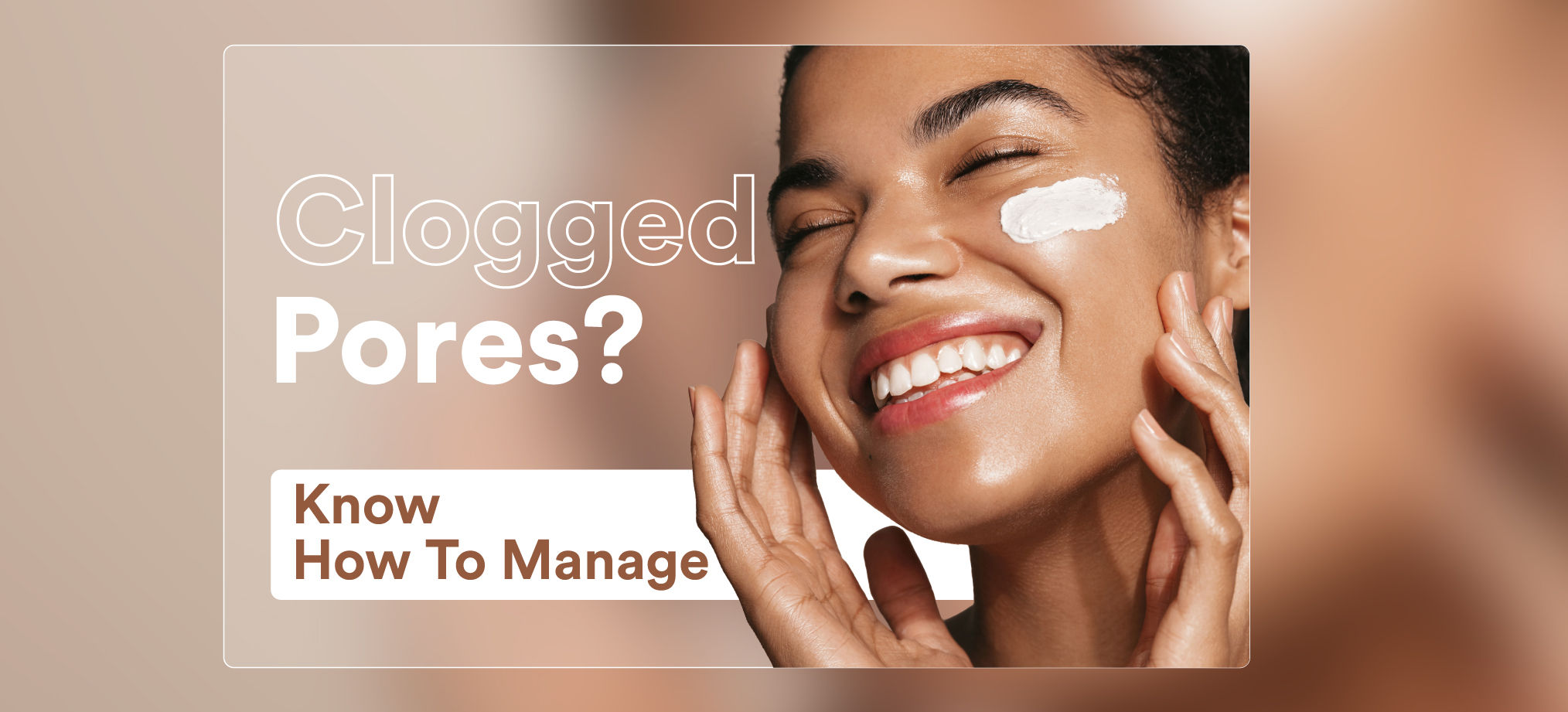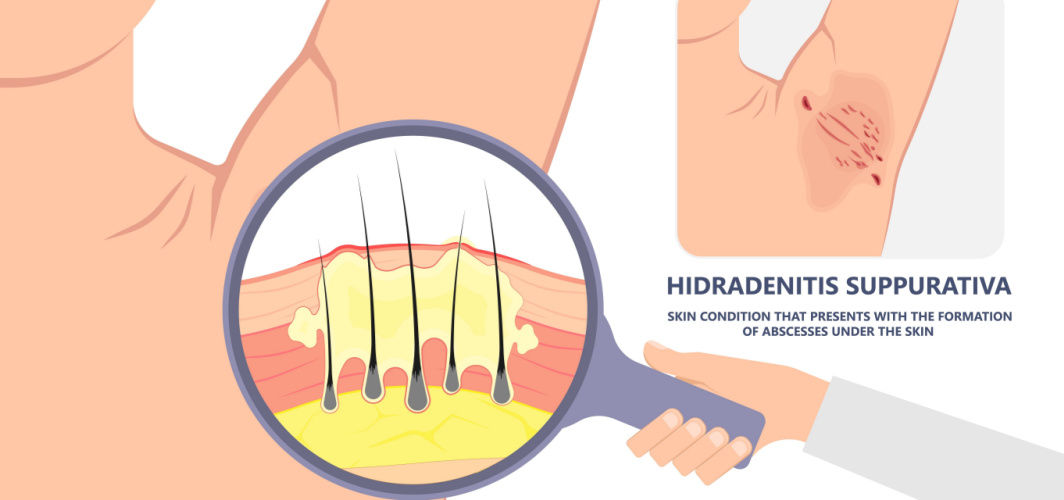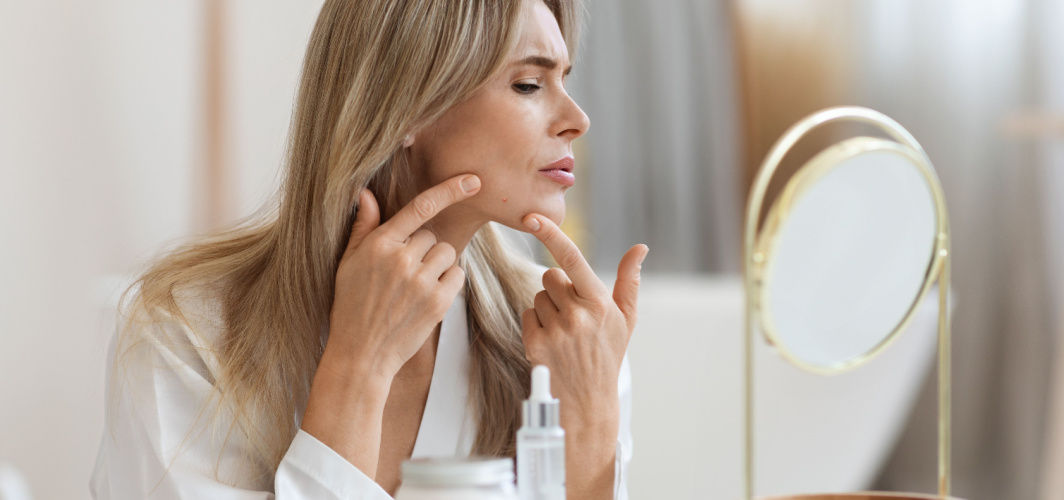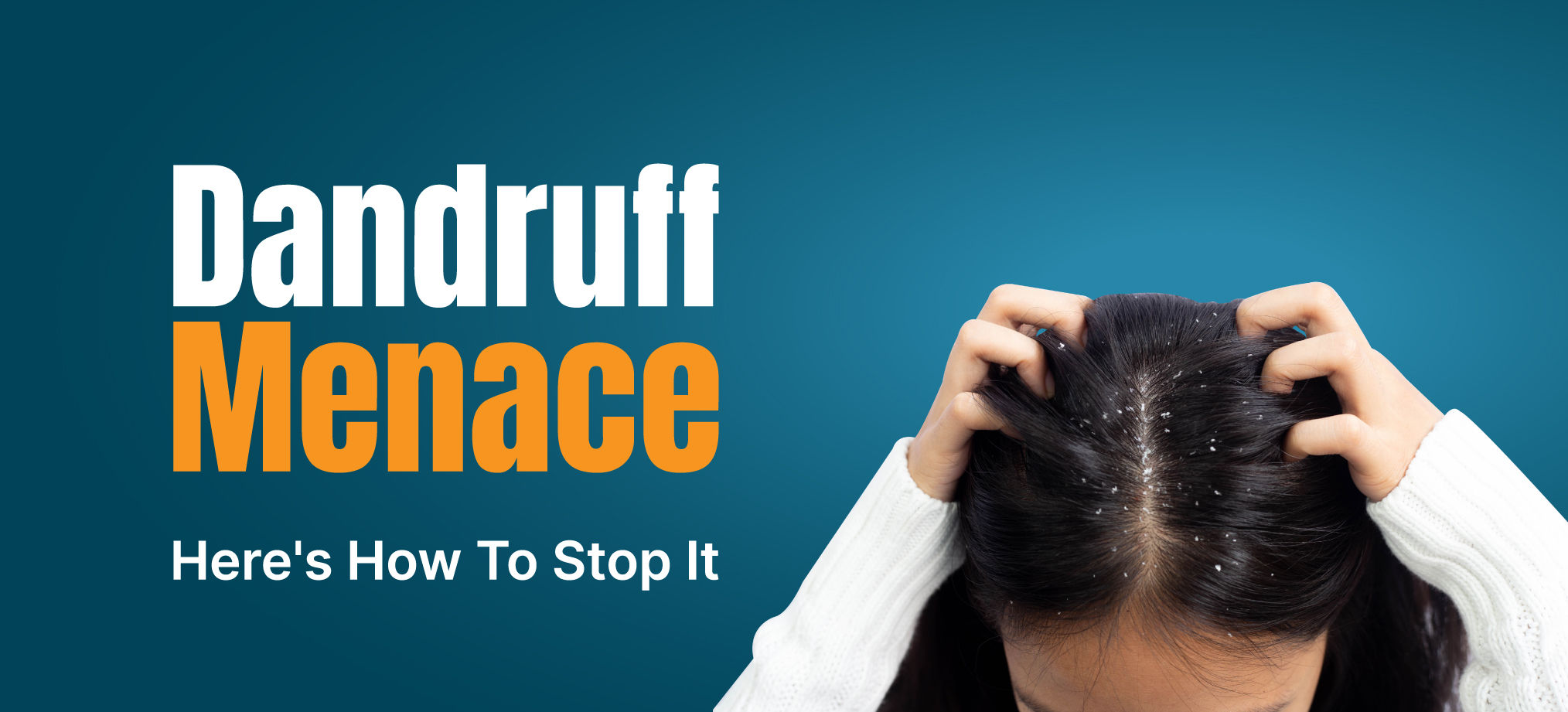Skin Care
Having Clogged Pores? Know What Causes Them and How To Prevent Them
5 min read
By By Apollo 24|7, Published on - 20 February 2023, Updated on - 02 March 2024
Share this article
0
1 like

While standing in front of the mirror, you have often observed some minute black or white spots on the tip and side of your nose. These are the spots that you try to scrub out while exfoliating your face. Scientifically, these are black and whiteheads that occur from clogged pores. Speaking about clogged pores, this is an extremely common skin problem that occurs when excess oil, dead skin cells, and debris accumulate on the skin, leading to blockages.
Confused about what causes clogged pores on the face? This article will take you through some common reasons and the best way to clean and prevent them.
What Causes Clogged Pores?
Clogged pores on the face usually have complex multifactorial causes. If you have been wondering what causes clogged pores, here are some reasons to blame.
1. Excess oil production: When your skin produces excess oil or sebum, it gets mixed with dead skin cells, pollutants and other debris to clog the pores.
2. Dead skin cells: The skin naturally sheds dead skin cells. But often, they accumulate and contribute to clogged pores.
3. Hormonal changes: Hormonal fluctuations during puberty, pregnancy, childbirth and menopause can increase sebum production, thus, clogging the pores.
4. Skincare products: Some skin care products, such as heavy creams and lotions, can clog pores, especially, if they don't suit your skin type.
5. Environmental factors: When you are exposed to pollution, dirt and other environmental elements can enter the pores of the skin and clog it.
6. Comedogenic ingredients: Some common ingredients like mineral oil and cocoa butter in skincare and makeup products are comedogenic (likely to clog pores).
7. Poor hygiene: Failing to clean your skin regularly and properly can allow the accumulation of oil, dirt, and dead skin cells that can clog pores.
8. Genetics: Some people’s skin is genetically predisposed to producing more oil, increasing the likelihood of clogged pores.
How to Clean and Prevent Clogged Pores?
The following ways are recommended to clean clogged pores on nose and face:
- Use non-comedogenic skincare and makeup products.
- Washing your face twice daily can help unclog pores and prevent further clogging.
- Periodic exfoliation can unclog pores, reduce pore size and increase skin firmness.
- Using specialised pores strips to pull out the dirt and grime.
Clogged pores can be frustrating and stubborn at times. Understanding what causes clogged pores on the nose and face is important to prevent them from occurring or reoccurring. An expert dermatologist can help identify the underlying cause and find the best treatment possible. So if you are struggling with persistent clogged pores, consulting a dermatologist can be a sensible idea.
Consult An Apollo Dermatologist
Frequently Asked Questions
1. How can I unclog my pores?
Steps like washing your face with lukewarm water, using non-comedogenic products, and gentle exfoliation can help unclog the pores.
2. What causes the clogging of pores on my face?
Clogged pores can develop due to the accumulation of oil, sebum, sweat, dead skin cells, dirt, pollutants, and bacteria.
3. What happens to untreated clogged pores?
Clogged pores generally lead to blackheads and whiteheads. If not treated on time, the clogged pores can cause infection and give birth to painful pimples or acne.
4. Can sunscreen clog pores?
Water-resistant sunscreen lotions usually contain oily ingredients that can clog pores.
5. Can moisturiser clog pores?
Applying excess moisturisers or moisturisers with thicker consistency can clog pores.
Consult An Apollo Dermatologist
Medically reviewed by Dr. Madhushree Agarwal
Skin Care
Leave Comment
Recommended for you

Skin Care
Hidradenitis Suppurativa (HS): Definition, Causes, Triggers, Symptoms, Treatments & Prevention
Explore Hidradenitis Suppurativa (HS) - its definition, causes, triggers, symptoms, treatments, and prevention strategies for a comprehensive insight.

Skin Care
Hormonal Acne: Definition, Causes, Symptoms, Treatments & Prevention
Discover all about hormonal acne, from its definition and causes to symptoms, treatments, and prevention strategies. Your guide to clearer skin.

Skin Care
Scientifically-Proven Ways To Deal With Dandruff
With some uncomfortable and embarrassing symptoms, dandruff can be developed due to several factors. In addition to using over-the-counter dandruff shampoos, there are several at-home remedies you can use to get rid of them.
Subscribe
Sign up for our free Health Library Daily Newsletter
Get doctor-approved health tips, news, and more.
Recommended for you

Skin Care
Hidradenitis Suppurativa (HS): Definition, Causes, Triggers, Symptoms, Treatments & Prevention
Explore Hidradenitis Suppurativa (HS) - its definition, causes, triggers, symptoms, treatments, and prevention strategies for a comprehensive insight.

Skin Care
Hormonal Acne: Definition, Causes, Symptoms, Treatments & Prevention
Discover all about hormonal acne, from its definition and causes to symptoms, treatments, and prevention strategies. Your guide to clearer skin.

Skin Care
Scientifically-Proven Ways To Deal With Dandruff
With some uncomfortable and embarrassing symptoms, dandruff can be developed due to several factors. In addition to using over-the-counter dandruff shampoos, there are several at-home remedies you can use to get rid of them.